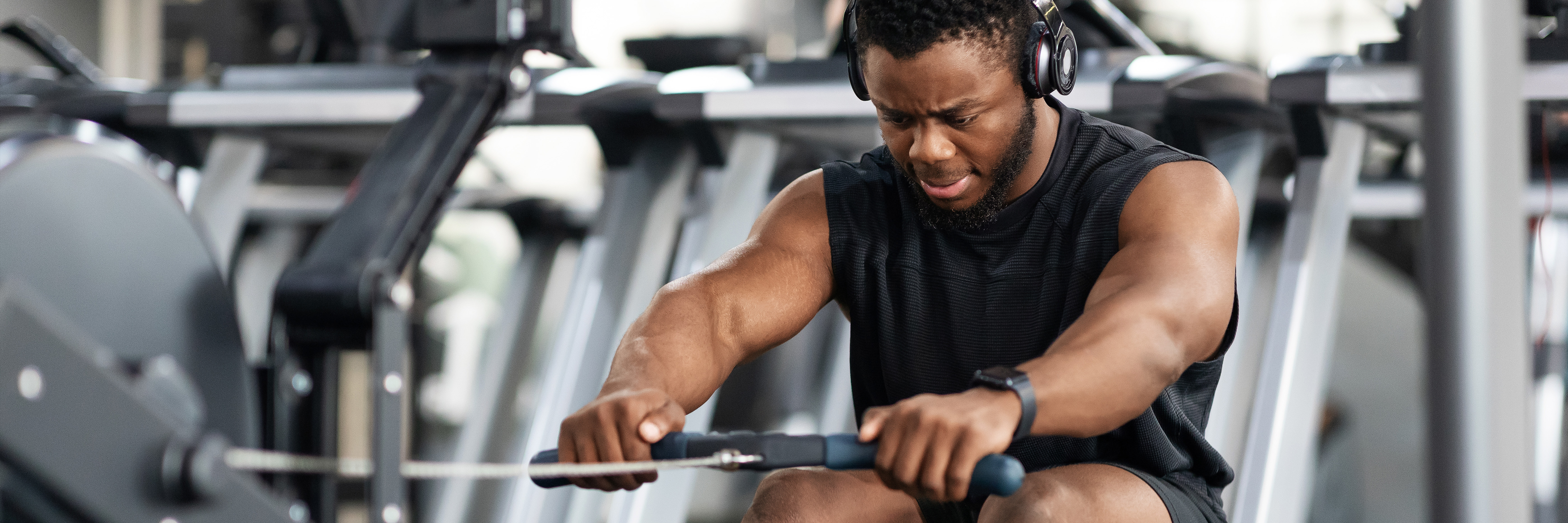Music and Rowing
How Rhythm Affects Performance

28 July 2023
Rowing is a sport that commands both physical exertion and intricate timing. The rhythmic sound of oars sliding into the water, followed by the smooth, synchronized motion of rowers, evokes a sense of unity that is fundamental to the sport. Much like an orchestra, rowing demands precision, with every move echoing the beat of a silent metronome. But could something as ethereal as music influence rowing performance? To this, rowing aficionados and experts would assert a resonant 'yes'.
Music, one of the most profound expressions of human emotion and creativity, pervades nearly every aspect of our lives. It has the power to stir emotions, energize the body, and inspire the mind. Its rhythmic elements, especially, resonate deeply within us, regulating our actions and transforming them into a seamless dance of effort and reward. Given the rhythmic nature of rowing, it's no surprise that music can play an influential role in enhancing a rower's performance.
Scientific research has consistently shown the profound effects of music on athletic performance. Upbeat, fast-paced music, for instance, is known to increase arousal and facilitate improved speed, strength, and endurance in athletes. Music with a defined rhythm can help in maintaining a consistent pace, thus enhancing the performance efficiency of endurance athletes.
Rowing, by its nature, demands a regular rhythm. The sequence and timing of each stroke, the synergy among rowers, and the distribution of effort throughout a race all lean heavily on rhythm. Listening to music that mirrors the desired stroke rate can aid rowers in maintaining this essential rhythm, especially during lengthy training sessions or races. It effectively serves as a metronome, aligning the rowers' strokes with the tempo of the chosen track.
Apart from its metronomic qualities, music can also act as a potent form of distraction. It draws the mind away from the physical exertion and potential discomfort associated with rowing, reducing the rower's perception of effort. Consequently, this 'distraction effect' can result in an increase in endurance and a notable improvement in overall performance.
Music's emotive aspect cannot be overlooked when discussing its influence on sports performance. It has the capacity to evoke a wide range of emotions, from soaring elation to determined grit. In the context of rowing, a well-timed, familiar, or particularly inspiring piece of music can provide that extra surge of motivation needed to push past fatigue, maintain pace, and ultimately, power through the finish line.
Yet, while the advantages of music in rowing are clear, its application must consider safety and regulations. In official races, the use of personal audio equipment is typically prohibited to ensure athletes can hear safety instructions and maintain fair competition. During training, however, when used judiciously, music can become a potent tool in a rower's arsenal, enhancing rhythm, motivation, and endurance.
Moreover, the integration of music into rowing extends beyond individual training. Many coaches use music during land-based workouts, such as ergometer training sessions, to maintain a high-energy environment and keep athletes engaged. Some rowing teams even choreograph their training to specific music tracks, creating a unique blend of athleticism and rhythmic harmony.
Nevertheless, it's important to remember that music is a personal experience and what works for one rower might not work for another. Some rowers may find the rhythm of a certain genre of music perfect for their stroke rate, while others may prefer the raw sounds of nature or the quiet focus that silence brings.
The role of rhythm in music isn't just a passive influence in rowing—it actively propels performance. It serves as an invisible coxswain, setting the pace, orchestrating the strokes, and driving the team forward. As science continues to explore the interplay between music, rhythm, and athletic performance, rowers and coaches may discover new ways to incorporate this powerful tool into their training regimes.
So, the next time you're preparing for an intensive rowing session, consider selecting a rhythmic playlist that matches your rowing pace. Listen to the beats, align your strokes, and let the music be your guide. It could transform your rowing experience, making each stroke feel less like a physical exertion and more like a dance with the water. Through this intriguing symbiosis of music and rowing, you might just find your performance hitting the right, resonant chord.